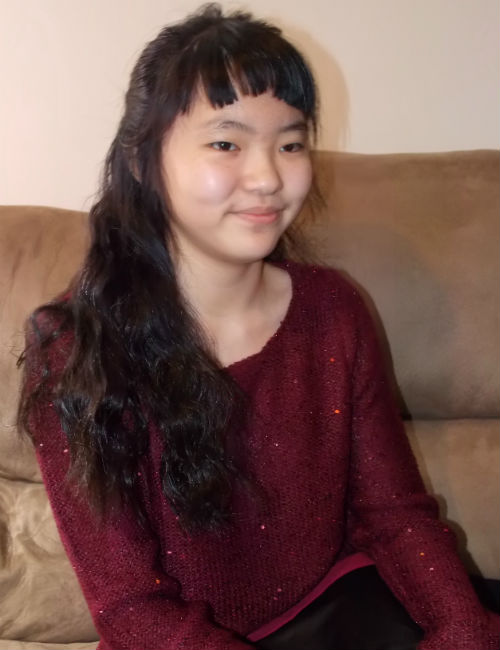
The Daily Struggle with POTS for a Pre-Teen
Lily, age 12, Ohio
Within a month of turning 10, Lily developed a fever, sore throat, headache, and crushing fatigue. It was April of 2012, and little did we know that our lives would be forever changed. After six weeks of doctor’s visits, she was finally diagnosed with mononucleosis. It was the end of fourth grade, and she missed field trips and a fair amount of school. By July, Lily was about 70% of normal, but was still fatigued and had pain in her upper left quadrant. Her abdominal pain caused her to curl into a ball on the floor for 5-10 minutes until it passed. We eventually learned that an ice pack would relieve this pain, especially when it occurred after eating.
By August, Lily was more fatigued than ever. It was almost time for school to start again, so off we went to the doctor. The pediatrician recommended seeing a specialist. That first appointment was particularly memorable because as the doctor was touched Lily’s lower back, Lily jumped. That light touch was painful, and she had never noticed it before. That was the beginning of lots of blood draws, x-rays, abdominal ultrasounds, back and hip MRIs. All normal. By October, Lily’s hypersensitivity to touch had morphed into neuropathic pain in both legs from the hips down. Sometimes Lily described the pain as bombs going off inside her legs. Sometimes it felt like pins and needles. Sometimes it burned. There was a time that her leg pain was so bad that she walked with a significant limp and required assistance to walk to the bathroom. Those were dark days. Her pain changes over time, but is intense and has been a nearly constant companion for more than two years.
Lily’s list of symptoms had continued to grow. She would stand, twist up her face, and grab her head. Before she said anything, it was obvious that another headache had been triggered. Her abdominal pain occurred daily, but luckily only first thing in the morning and after she ate. She had crushing fatigue, and would sit for an hour without even wiggling a toe. It’s hard to describe, but she had very little muscle tone and sank into her recliner more than usual. She didn’t lift her head to watch TV or read. She had hot flashes. Chills. She would flinch if a piece of paper touched her legs. Lily struggled with nighttime wakefulness. She became sensitive to light and sound. We got special permission for her to wear sunglasses in the classroom. Some of her teachers turned out the fluorescent lights the hour Lily was in their room. She had an extra chair to use to put her feet up. Lily was in 5th grade when we got a 504 medical disability plan for her at school. In one nine weeks, Lily missed 42 days of school (out of 45 in the 9 week period). Through it all, she did not complain. She smiled and tried to leave her illness and pain for the imaginary worlds found in books, movies, and video games.
Lily was finally diagnosed with POTS after nine months of illness and just as many specialists. I rejoiced because I thought having a name for her illness meant that we could treat it and that our lives would return to some level of normalcy. I was wrong. She has been treated by pediatric POTS specialists for two years, and is not significantly better than she was at the time of diagnosis. We have tried medications, pain specialists, pain psychologists, physical therapy, exercise regimens, meditation, and the elimination diet. We have followed every instruction. Still, Lily is struggling with POTS. Just after her 11th birthday, we bought her a wheelchair. At age 12, her course load in middle school has been dropped from six academic courses to three. She struggles to attend even one or two classes per day. We have arranged for a tutor to come to our home to make her studies more manageable.
We continue to look for an underlying cause for Lily’s POTS. I know in my gut that something else is going on. I will not rest until I help my daughter. She deserves a chance to actually go out and live her life, and I have every intention of giving that to her. I hope that we can join with other families to make our voices heard, raise awareness, and find a cure for those we love! Let’s all Stand Up to POTS!